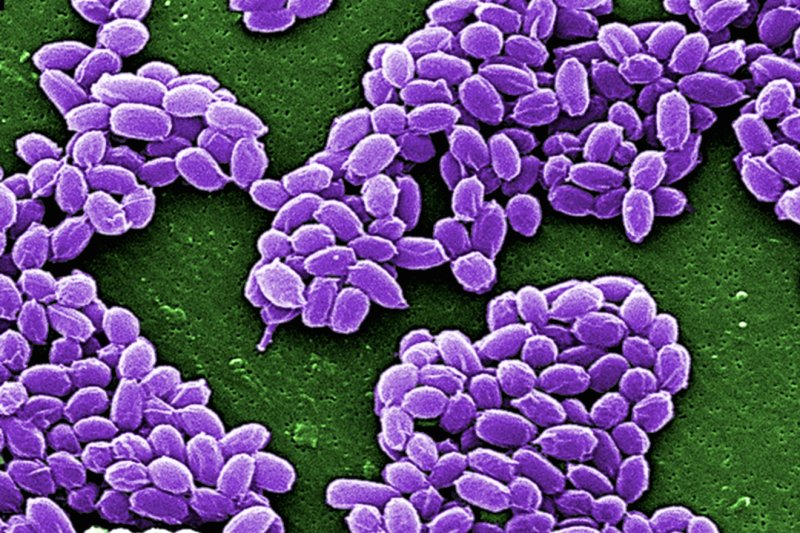Researchers in Spain have developed a way to glean insights into human protein interactions by studying the evolution protein interactions among bacteria. CDC photo
MADRID, Dec. 29 (UPI) -- The complexity of the human system -- the sheer abundance and diversity of the moving parts -- make studying specific biochemical interactions quite difficult. But a team of a researchers in Spain have found a new way to study human protein interactions -- by not studying the human body at all.
Scientists from the National Cancer Research Center, CNIO, in Madrid, showed human protein interactions can by understood by studying the evolution of their counterparts among simpler organisms, like bacteria. They published the results of their research in the journal PNAS.
"The complexity of human beings does not only result from the number of proteins that we have, but primarily from how they interact with each other," Juan Rodriguez, a scientist with the Structural Computational Biology Group at CNIO, explained in a news release. "However, out of 200,000 protein-protein interactions estimated, only a few thousand have been characterized at the molecular level."
Without a firm understanding of molecular structures, it's difficult to study and predict protein interacitons. Studying the evolution of protein interactions among bacteria offers a workaround.
By surveying thousands of genomic sequences from bacteria, CNIO scientists created a window into the world of human protein interactions.
"Proteins that interact tend to experience coordinated evolutionary changes that maintain the interaction despite the accumulation of mutations over time," said CNIO researcher David Juan. "We have demonstrated that we can use this phenomenon to detect molecular details of interactions in humans that we share with very distant species."
Scientists hope their new research will improve already powerful models of complex biological systems, and bolster their ability to study complex diseases like cancer.















